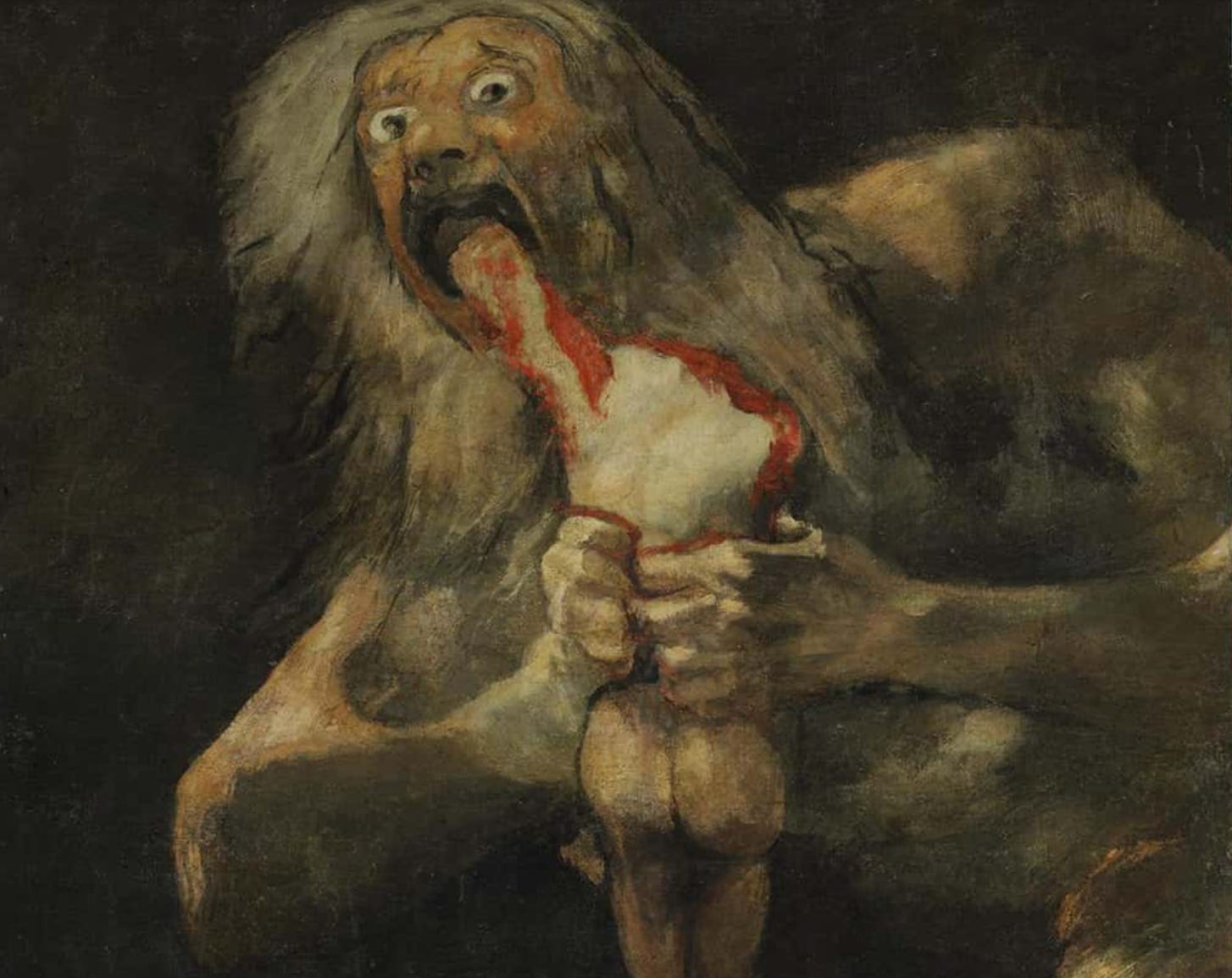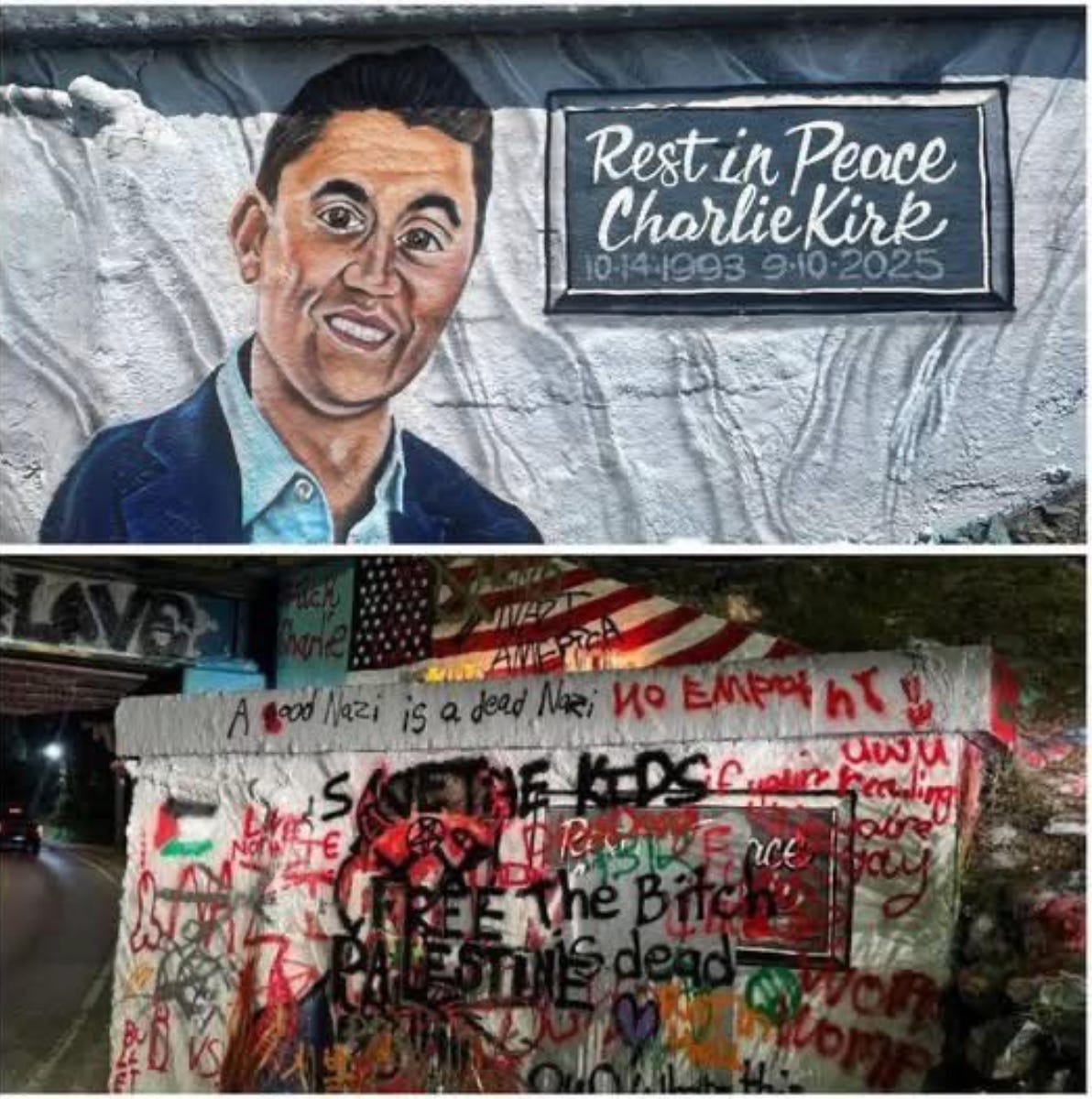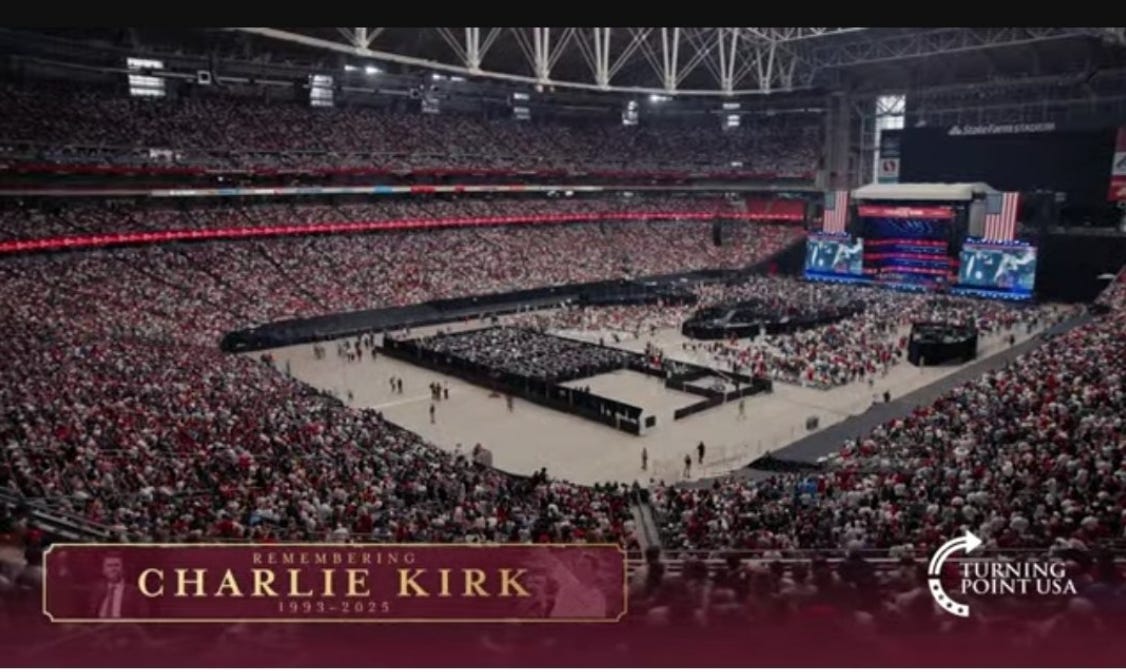The Battle Between Light and Darkness is Joined
200,000 Attend Charlie Kirk's Memorial Service while many others revel in hate.
The Spanish painter, Francisco Goya, was traumatized by the violence of Napoleon’s occupation of Spain (1808 - 1814). His experience caused him to meditate on the monstrous element in human nature that may, under certain circumstances, become dominant. Such meditations gave rise to his so-called “black paintings” in which he depicted his nightmarish vision of madness. The most terrifying, it seems to me, is his painting of “Saturn Devouring His Son.”
I thought of this painting a few days ago when I saw the image of a bearded young man expressing triumph and elation shortly after Charlie Kirk was assassinated.
His exaltation at the spectacle of a young man shot in the neck recalls Yeats’s dark vision of the end of the Christian era in his poem “The Second Coming.”
Mere anarchy is loosed upon the world,
The blood-dimmed tide is loosed, and everywhere
The ceremony of innocence is drowned;
The best lack all conviction, while the worst
Are full of passionate intensity.
We witnessed more of this “blood-dimmed tide” being loosed in the image of a desecrated Charlie Kirk memorial. This is the work of people burning with homicidal rage and hate, reveling in mindless, perverse mockery.
Can the light prevail against such potent depravity? The spectacle of 200,000 attending Charlie Kirk’s memorial service today gives one hope.
"That young man, I forgive him," said Erika Kirk, struggling to hold back tears, which prompted the crowd to erupt in a standing ovation.
Of all the things that Jesus said, his command to “love your enemies" and "do good to those who hate you" may be the most radical idea ever proposed. In Dostoevsky’s The Brothers Karamazov, Ivan Karamazov imagines Jesus appearing in Sevilla during the Inquisition and being arrested by the Grand Inquisitor, who accuses him of asking the impossible of humanity.
When we are confronted—as Goya was—with the monstrous acts of man, is it possible for us to maintain our equanimity and to forgive the perpetrators? I suppose it depends on whether the perpetrators are able to recognize their monstrousness and demonstrate a genuine desire to repent and ask for forgiveness.







Forgiveness doesn't depend on the perpetrators actions. It's a act of will, to forgive because Jesus Christ forgave us while we were yet sinners. Erika's act of forgiveness was powerful and genuine.
We forgive because we are called to do so by our Lord and Savior, Jesus Christ, whether the perpetrators repent or not.